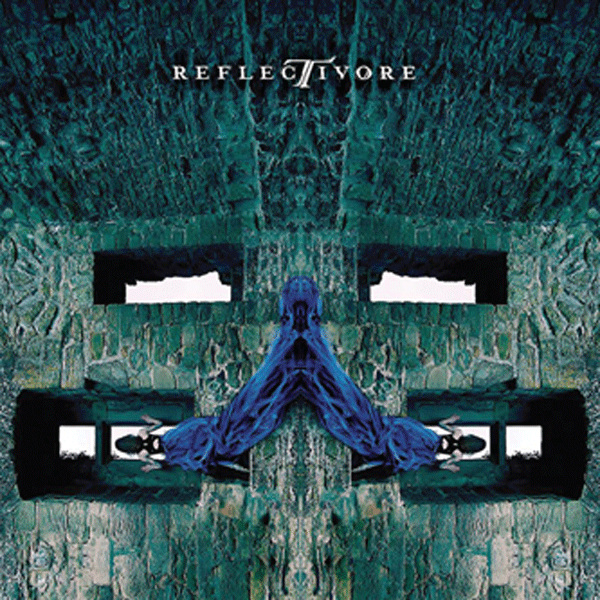News & Articles
Browse all content by date.
 After over five years of reviewing albums from this area I’ve mentioned a number of great studios and engineers that help artists make their music that can be found everywhere from coffee shops to local record stores like Electric Fetus. Off the top of my head: Rich Mattson at Sparta Sound and Tom Fabjance, Eric Swanson and Jake Larson with Sacred Heart Studio have all done great mixes that I listen to rather often. Of course there are plenty of people who have acquired enough gear and spent enough time with it to make albums that are solid enough that I don’t second guess their quality. It’s actually really amazing how far technology has come in the last 15 years or so.
After over five years of reviewing albums from this area I’ve mentioned a number of great studios and engineers that help artists make their music that can be found everywhere from coffee shops to local record stores like Electric Fetus. Off the top of my head: Rich Mattson at Sparta Sound and Tom Fabjance, Eric Swanson and Jake Larson with Sacred Heart Studio have all done great mixes that I listen to rather often. Of course there are plenty of people who have acquired enough gear and spent enough time with it to make albums that are solid enough that I don’t second guess their quality. It’s actually really amazing how far technology has come in the last 15 years or so.
There’s another studio over on the Wisconsin side that has turned out a number of well done albums for Twin Ports bands and several groups from out of the general area. That would be the Weight Room in Washburn, WI. Some teenagers in the late 90s would sneak out of the house to go to parties. I snuck out of the house to hang out with Ryan Rusch, the owner/engineer of the Weight Room before it was technically a studio.
Before Rusch’s studio became the Weight Room, things began with a Tascam (or was it a Fostex?) 4-track and some stereo speakers which passed as monitors. Some advances back in the day included upgrading to a 12-track digital Akai porta-studio with a whole 2GB of memory! Yes, to record an album would require deleting songs once they were finished to clear up more room for new material. It was a major breakthrough when a friend loaned us a CD burner back then, something we couldn’t imagine living without in this day and age. Rusch and myself went out to the Recording Workshop out in Chillicothe, OH in 2001 and spent about a month in an intensive program where we would get up in the morning and attend lectures on audio production, we’d get a break in the afternoon, and then go back to record local bands from the area. That could go until 2 a.m. sometimes. I personally had not sat around waiting to see someone do a perfect vocal take for three hours before. Rusch should be happy he missed that session. Everything from Pro-Tools to tape, from punk bands to pop was thrown at us six days a week.
When we got back to Wisconsin things started right away with a couple of projects that I had and Rusch’s band Professor Hefner and the 18 Year Old Experiment, which was later shortened to just Professor Hefner for obvious reasons. During that period of time his house turned out several albums that I still sometimes listen to; including The Horribles, the only all female punk band to exist in the this area to my knowledge aside from The Keep Aways.
I went on to go attend further schooling in things like theater, music, and eventually journalism while Rusch remained in Washburn and gradually built his studio. I’d visit my home area from time to time and every time I’d stop in, he’d have some new thing like a cool sonic maximizer, compressor, or mic pre-amp. Those were things I was familiar with. After a renovation of his house, he literally built a studio from below the ground up. During this evolution Rusch’s music went from being raw punk and metal to more experimental and melodic. With almost every song that came out, it took new directions. I still show up to his studio from time to time and I couldn’t tell you what 75% of the things he has now even do or let alone how to use it. The gear used ten years ago is practically garbage in comparison. Me buying a used Digitech multi-effects processor that used to be a part of the Big Top Chautauqua rig was another big upgrade some 15 years ago. That unit has long since served its duty in what is now the Weight Room.
Years later I found myself as a booking agent for a brewpub in Superior while I was still in college. I was pretty into punk, metal, indie, and experimental rock and that’s what I’d book late at night on weekends. That’s when I ran into a guy named Allen Cragin who was in the band Circa A.M. during those days. Cragin’s mix of jazz and rock influences on the guitar set him apart in my book during those shows nearly a decade ago. I have no idea who met Cragin first, me or Rusch. But they met and became close friends. Naturally, two talented people doing music might one day decide to start up a project and that’s where Reflectivore comes in.
So, Reflectivore is Rusch and Cragin along with guest musicians, a studio that I think is one of the most advanced in the area and I don’t want to think of all the combined years of experience. In my years working around Rusch, there always was an importance placed in making something different, making something special, and giving the listener a unique experience. If these things aren’t achieved in a recording, then what’s really the point of making music? This isn’t to say that any type of music can’t be recreated into something cutting edge and fantastic. It just gets harder to do when all you have is an acoustic guitar and a banjo, but groups like The Lowest Pair have somehow broke the mold on that.
When it comes to Reflectivore, this album displays many of the things that I look for.
So, what is this album? It spans across a wide expanse of sounds. The opening track, “Ticonderoga,” features Rusch on the piano/keys. Cragin’s innovative guitar playing resounds throughout the album taking unexpected turns between the unconventional to sometimes straight out rocking it, but it’s clear this isn’t your ordinary rock album. Is it rock? Sometimes. It’s really coming down to studio production here along with with whole package of thought out musicianship. There’s a gradual ascending listening journey happening from the beginning to end of this album. I find myself caught on a lot of albums that I’d have to say are a “one trick pony” where the artist gets caught up in a certain sound. It’s good, but then they beat it into the ground. It’s fair to say that this isn’t the case here. The swirling arrangements that give way to build ups and break down with songs like “Flight 7 77” creates depth and something genuinely solid. Guitar feedback with a vibraphone and female back ground vocals? I can’t say I’ve seen something laid out like this, plus the song keeps going into different parts filling out but not leaving the feeling that the change ups are unnecessary. How many people go from multi-instrumental singer/songwriter, kind of trip-hop to heavy and intense rock? I’ll say that doesn’t pop up often for me.
With a group called Reflectivore it seems interesting that there are a few mentions of a mirror or a looking glass in the lyrics. The most obvious is in the song “Red Looking Glass.” The song is simply gorgeous and it has a music video which features Cragin’s daughter and was directed by Washburn native Kjell Kvanbeck. The video adds a little to the song overall. I showed it to a friend and he felt the drums were a little too hard hitting, which I found amusing because they were done by Mat Millinkovich who has played in numerous bands over the years. Personally, I feel that Millinkovich held the intensity of the song well and it’s everything it should be but I have to throw some criticism in here. The Bayfield County Sheriff’s Department wasn’t overly happy at the burning of a piano on the beach for the video and that led to some minor legal troubles. I’m assuming this is the piano that has been sitting outside Rusch’s house for quite sometime if I’m not mistaken. It’s good he finally did something with it.
The end of the album starts to take a twist and the track “Organ Grinder” makes it apparent that this isn’t just an easy listening alternative album. Rusch’s vocals begin soft, but when things hit, they hit with some impact. Of course they fall back inline with solid guitar riffs and effect ridden vocals. There are times where I feel there is a little bit of repetition happen on certain riffs and vocals, but that’s about the only real criticism I have on the album overall. I can tell that there were decisions made throughout the album to make the largest possible impact. I can’t say the album is perfect, but as far as creating a listening experience, which is what I look for before things like quality, technical musicianship, and lyrical weight, this album pulls it together in both the experience and all of the above.
This album gradually gets more experimental and heavy. The last track that I have is “The Gravity.” It is from what I can tell all electronic beats and sounds aside from Rusch’s vocals. To describe it
it’s the most anguished psychedelic industrial song I’ve heard in awhile. I don’t usually put psychedelic and industrial in the same sentence.
Overall, this is an album created by two people who have been dedicated to music for as long time and I wouldn’t expect anything less. It shrugs definition yet creates an experience. Sure, the old timers might laugh at that, but music, technology, and personal innovation from people who play has progressed more than I ever would have thought from back in the day when I looked 16, was 19 and still got served at the Ohio bars back during my brief time learning about audio production. I’m not surprised that this is album is good. I am stunned by people with hardly any experience doing things that I wouldn’t have thought possible back in 2001. Anything is possible with music and never limit yourself by thinking otherwise. You could get boring. Reflectivore will have a show coming up soon. Look them up, they have downloads, vinyl and t-shirts the last time I checked. Word on the street is if you buy a vinyl album, you’ll be added to the guest list at their upcoming show.
| Tweet |


